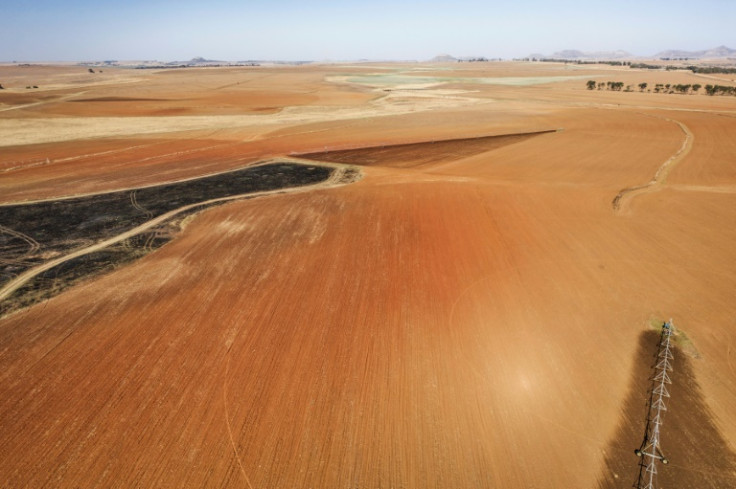Climate Change, Power Cuts Exert Pull On South Africa's Farming

The sustained load shedding at current extreme levels and climate change are sowing the seeds of a food crisis in South Africa.According to a report by the Council for Scientific and Industrial Research (CSIR), a state scientists' group, South Africans had more than 1,900 hours of power cuts in 2022 alone, which made the year the most load-shedding-intensive.
It is taking a toll on the export-oriented agriculture sector in the country as the critical harvest season started in November and ends in March 2023.
As farmers are seeking alternative energy sources, production costs have increased manyfold, while small and medium-scale farmers are struggling to cope with the spiraling cost.
Farmers and producers of temperature-regulated products are left in the lurch as they are not in a position to guarantee shelf life to food items, while farmers depending on irrigation have fallen on hard times due to lower diesel supplies. Farmers are spending millions of rand on acquiring generators, solar panels, and to buy diesel.
The problem is more visible in the Western Cape, which accounts for nearly 55 percent of the country's primary agricultural exports. There are more than 7,000 commercial farmers and 9,000 small-scale farmers in the Western Cape.
In the midst of load shedding and load reduction, the National Energy Regulator of South Africa (NERSA) has announced an 18.65 percent increase in power tariff from April 1. So, it is not going to be easy for farmers to reap rich dividends during this harvesting season.
"This is a serious challenge for the agricultural industry," said Christo van der Rheede, executive director of the commercial agricultural representative organization AgriSA.
South Africa has been passing through Stage 6 load shedding since Jan. 11 after state-owned power utility Eskom suffered multiple breakdowns at its power stations.
Major cities are put on high alert as damage is caused to critical infrastructure as the blackouts lead to higher levels of crime.
The high cost of food items is threatening to drive up inflation and at the same time disrupt supply chains, which will be further exacerbated by this latest hike in electricity costs, tipping food security to the edge of the precipice.
Consumer food price inflation is estimated to have averaged around 9 percent in 2022 from 6.5 percent in the previous year, which was also in part driven by global agricultural commodity challenges.
The energy supply in the country is unlikely to witness any change in the short term. The demand has already increased as economic activities are picking up following the December Christmas break.
The demand is increasing as the embattled power utility has been left with little money to buy more diesel for the generators and is currently banking on the 50 million barrels secured from PetroSA late last year. This will last until March 2023, when the harvest season ends in the country.
The agriculture sector in the country holds great potential to curb poverty in the country as it plays a vital role in the economy.
The ruling African National Congress (ANC) had put a thrust on it in its policy documents to expand agricultural production for the benefit of poor rural communities.
In 2020 and 2021, the agriculture sector was one of only four sectors to register growth. With its 8.3 growth, it was second only to the mining sector, which posted 11.8 percent growth.
In 2022, South Africa's economy expanded mainly driven by a recovery in agriculture and manufacturing.
Agriculture expanded by 12.2 percent quarter on quarter while manufacturing grew by 2.8 percent.
South Africa's National Development Plan in 2012 also stressed the expansion of agricultural products and agro-processing to create a million jobs.
But with the current power crisis, agricultural expansion goals have gone topsy-turvy.
South Africa, located on the southern tip of Africa, with an extensive coastline of approximately 3,000 km, is considered vulnerable to climate change due to a combination of political, geographic, and social factors, according to a World Bank report.
As climate change is exerting its pull on its economy, economic growth, energy generation, and job creation are not on the right track.
Given its current state of food insecurity and crop failures, reduced productivity is going to be the order of the day in Africa's most industrialized nation.
© Copyright 2025 IBTimes IT. All rights reserved.




















